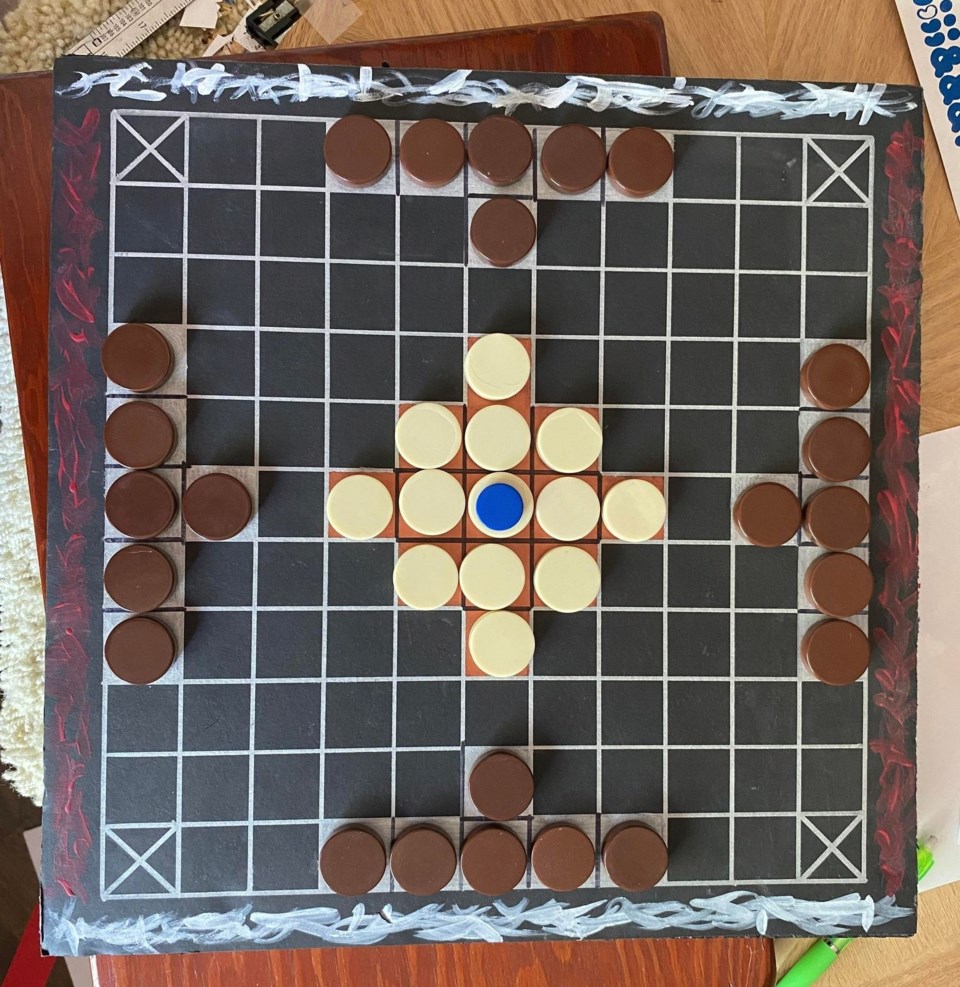YORKTON - Over the last few weeks we’ve been looking at a bunch of games you can play with checkers / Othello pieces / backgammon stones, and a simple square grid of varying size you can create rather easily.
There is one more family of games which should be mentioned as an option for a project like the one we’ve been looking at, and that is the tafl family of games.
So for a quick explanation of tafl games we turn to Wikipedia, “Tafl games (pronounced [tavl], also known as hnefatafl games) are a family of ancient Nordic and Celtic strategy board games played on a checkered or latticed game board with two armies of uneven numbers.”
This is the intriguing aspect of tafl games. One player has less pieces, or men, in play, and each player has a different goal in terms of their win condition.
One player needs to get their ‘king’ to safety, while the other must capture the king before he escapes.
The dynamic of the game is quite different from most abstract strategy games where forces tend to mirror each other, and the win condition is the same for both players – such as chess, checkers, Terrace and other.
There are actually a rather diverse family of games here including Hnefatafl, Tablut, Tawlbwrdd, Brandubh, Ard Rí, and Alea evangelii, but they have a common mechanic.
“Games in the tafl family were played in Norway, Sweden, Denmark, Iceland, Britain, Ireland, and Lapland,” notes Wikipedia. “Tafl gaming was eventually supplanted by chess in the 12th century, but the tafl variant of the Sami people, tablut, was in play until at least the 18th century.”
This is what truly intrigues me as a player. When sitting down to play one of the varied tafl games you are in a way connecting with people who played the same general game centuries earlier.
The connection is not exactly unique to tafl games. Every time you pick up a Go stone in the unique fashion of the game and place it on the board with the familiar ‘click’ it makes, it’s hard not to feel you are doing something that has been done millions of times by beginners to masters through the centuries.
How many times in the hundreds of years of chess has the word ‘check’ been given?
Yet with tafl the connection feels even sharper, at least for me. Could the Vikings who landed on the east coast of what would one day become Canada have played a game in their time here?
And here we are playing the game, or at least a facsimile of it today.
The original rules are actually a mystery lost to time.
“The rules for tablut were written down by the Swedish naturalist Linnaeus in 1732, and these were translated from Latin to English in 1811,” notes Wikipedia. “All modern tafl games are based on the 1811 translation, which had many errors. New rules were added to amend the issues resulting from these errors, leading to the creation of a modern family of tafl games. In addition, tablut is now also played in accordance with its original rules, which have been retranslated.”
The result today is that we have a number of tafl variants, with boards ranging in size, for example Alea evangelii is played on an 18X18 board.
More traditional tafl games tend to be played on 9x9, or 11x11, and I’d suggest looking online and trying both out, as each offers just enough uniqueness to be interestingly different.
There is a World Tafl Federation (www.aagenielsen.dk) which is a good resource for players.
The association even hosts an online World Championship, the 2022 edition starting Sept.15.
While tafl games might not be the most popular – arguably they should be I’d suggest – you almost assuredly have pieces you can use, and again drawing a grid is rather easy, so try out some tafl play, you will enjoy it.






